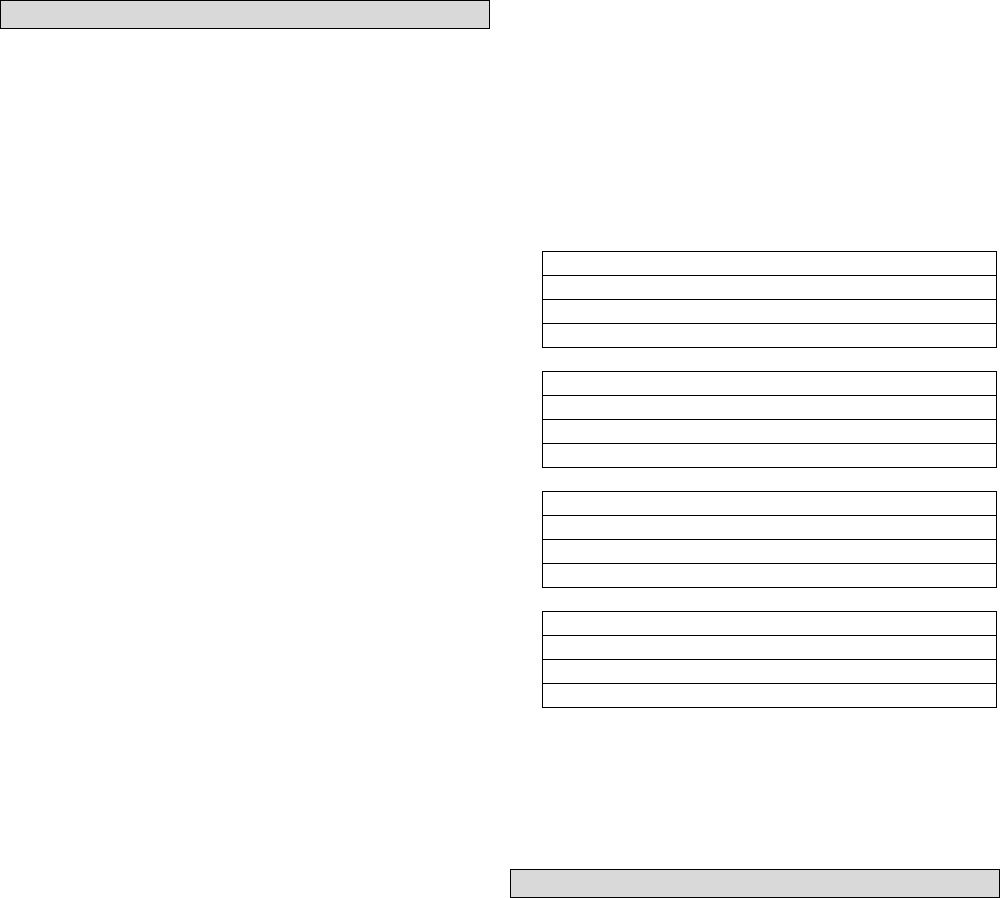
18
Periodic Inspection
frequency of periodic inspection depends on severity of
usage:
NORMAL HEAVY SEVERE
yearly semiannually quarterly
Disassembly may be required for HEAVY or SEVERE
usage. Keep accumulative written records of periodic
inspections to provide a basis for continuing evaluation.
Inspect all the items in "Frequent Inspection." Also inspect
the following:
1. FASTENERS. Check all rivets, split pins, capscrews and
nuts. Replace if missing or tighten if loose.
2. ALL COMPONENTS. Inspect for wear, damage,
distortion, deformations and cleanliness. If external
evidence indicates the need, disassemble. Check gears,
shafts, bearings, sheaves, chain guides, springs and
covers. Replace worn or damaged parts. Clean, lubricate
and reassemble.
3. HOOKS. Inspect hooks carefully for cracks using
magnetic particle or other suitable non-destructive
method. Inspect hook retaining parts. Tighten or repair
if necessary.
4. LOAD CHAIN SPROCKET. Check for damage or
excessivewear. Replace if necessary. Observe the action
of the load chain feeding through the hoist. Do not
operate a hoist unless the load chain feeds through the
hoist and hook block smoothly and without audible
clicking or other evidence of binding or malfunctioning.
5. MOTOR. If performance is poor, disassemble the motor
and check for wear or damage to bearings and shafts.
The parts should be cleaned, lubricated and
reassembled. Replace worn or damaged parts.
6. BRAKE. Raise a load equal to the rated capacity of the
hoist a few inches (cms) off the floor. Verify hoist holds
the load without drift. If drift occurs, disassemble.
Remove the brake discs as described in the
"MAINTENANCE" section. Check and clean the brake
parts each time the hoist is disassembled. Replace the
brake discs if the grooves are no longer visible.
7. SUPPORTING STRUCTURE. Check for distortion,
wear and continued ability to support a load.
8. TROLLEY (if equipped). Check that the trolley wheels
track the beam properly and trolley is correctly adjusted
in accordance with manufacturer's literature. Check that
wheels and beam are not excessively worn and inspect
side plates for spreading due to bending. Do not operate
the hoist until the problem has been determined and
corrected.
9. LABELS AND TAGS. Check for presence and legibility.
Replace if necessary.
10. LOAD CHAIN END ANCHORS. Ensure both ends of
the load chain are securely attached. Secure if loose,
repair if damaged, replace if missing. Check chain
stoppers are correctly installed and functional.
11. LOAD CHAIN. Measure the chain for stretching.
Measure the load chain over the outside of five link
sections all along the the chain, paying particular
attention to the most frequently reeved links. When any
five links in the working length reaches or exceeds the
discard length, replace the entire chain. Always use
genuine Ingersoll-Rand Material Handling replacement
chain. Zinc plated load chain is standard on Liftchain
hoists.
LC2A015S / LC2A030D :
Chain size 8x24 G8 (69089432)
Normal Length: 120 mm
Discard Length: 122 mm
LCA030S / LCA060D :
Chain size 13x36 G6 (69087432)
Normal Length: 180 mm
Discard Length: 183 mm
LCA035S / LCA070D :
Chain size 13x36 G8 (69054232)
Normal Length: 180 mm
Discard Length: 183 mm
LCA060S to LCA250Q :
Chain size 16 x 45 G8 (69087532)
Normal Length: 225 mm
Discard Length: 228 mm
12. CHAIN CONTAINER. Check for damage or excessive
wear and that chain container is securely attached to the
hoist. Secure or replace if necessary.
13 LIMIT SWITCH. Check limit switches function
correctly.
Hoists Not in Regular Use
1. A hoist which has been idle for a period of one month or
more, but less than one year, should be given an
inspection conforming to the requirements of "Frequent
Inspection" prior to being placed in service.
2. A hoist which has been idle for a period of more than one
year should be given an inspection conforming to the
requirements of "Periodic Inspection" prior to being
placed in service.
3. Standby hoists should be inspected at least semiannually
in accordance with the requirements of "Frequent
Inspection." In abnormal operating conditions, hoists
should be inspected at shorter intervals.


















